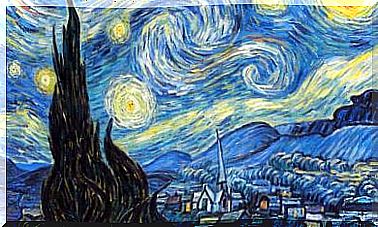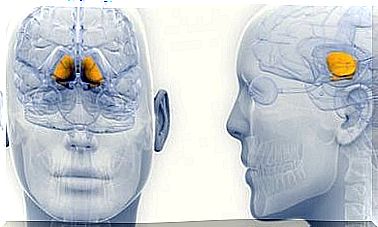Days Are Not Remembered, Moments Are Remembered

Memory is far from being an exclusively intellectual function. The memories of a person are not like those of a computer: data is not stored, but experiences and moments are fixed. This means that visual images, words, but also smells, tastes, sensations are remembered …
It can be said that memory, in the human being, is a basically affective function. The information and experiences that are remembered almost never correspond to objective data. Human memory is creative and that is why it suppresses or adds elements to those memories, depending on the affects that are involved.
In fact, there are times when events that never happened are remembered. This occurs mainly with childhood experiences. A fantasy was experienced with such intensity that it is integrated into memory without actually occurring.

The experiences that are remembered
In reality, memory is capable of storing absolutely everything that we experience throughout our existence. However, only some of these events are consciously remembered, the others are submerged in the unconscious.
Certainly, there is a place in our memory where the memory of the moment when we opened our eyes to the world is imprinted. However, none of us can account for that fact. It is due to two reasons: first, because, according to a study carried out in Canada, the memories of the first years are erased due to the constant production of new neurons.
Secondly, we do not have these first memories in mind because during that stage several of the deepest experiences of our psyche occur and these end up being repressed, because they can be intolerable for our conscience. This is what happens with the Oedipus complex.

Even so, many of these memories persist and appear in consciousness as an isolated and, at the same time, very deep sensation. For example, when a melody is heard and an emotion is activated that refers us to the past, but in which we cannot specify a specific date or situation.
In general terms, it can be said that what is consciously remembered is that which required great attention or concentration and which had a content that was understandable to us. Positive or negative situations, but relatively reasonable and lacking in emotionally confusing or contradictory content.
We better remember the rare

Those situations that completely capture our attention involve the engagement of a whole series of components. Mental concentration, alert senses, a strong associated feeling and some element of surprise or novelty that is related to the three previous components. That is why it is relatively easy to remember rare events and, instead, we easily forget those that are routine.
We consciously remember those moments that, in one way or another, demand our full attention and that have an affective impact on us. But those moments must also be perfectly understandable so that they are fixed to the conscience, otherwise they are usually repressed.
The unforgettable moments
What is not forgotten is what forces us to live intensely in the present in a situation. Those moments in which you feel one with the universe, where there is nothing more than what you have around you and you feel as if the world begins and ends right where you are. This is true for pleasant experiences as well as for those that are gruesome.
Those moments become so enduring that even years later they can be evoked with a very unique emotion. You almost re-experience that moment, as there are reminiscences with enough intensity to make it so.

Depending on the experiences before or after that moment, the evocation is more or less exact. If what followed a negative event were pleasant moments, surely it is possible to remember it with less drama and even with laughter.
But if after that there were other difficult situations, a value of deep aversion to it will be granted. If the experience was positive and negative events followed, it will be remembered with nostalgia. If what followed were other pleasant moments, the thrill of the memory can be very intense and rewarding.
This is memory: creative and flexible. Like a sponge that absorbs those unique and unrepeatable moments that make a difference in life. Like a large album full of photographs that is reviewed when the heart needs it and allows us to understand that the days are not remembered, but the moments.
Images Jennifer Holmes, Kim Joone









